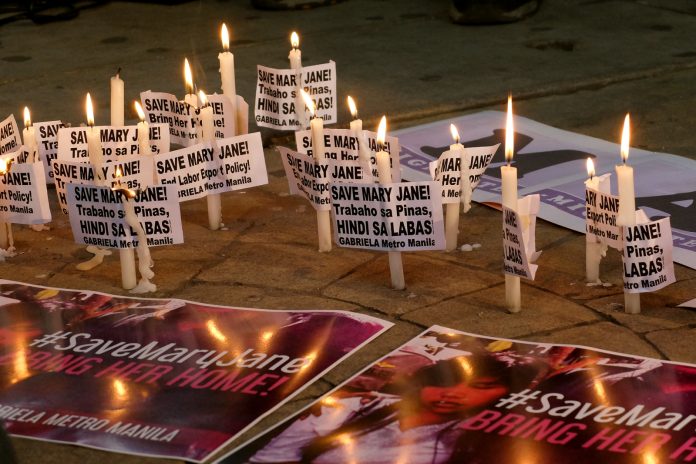An organization of migrant workers on Monday, September 5, called on the government to look into the cases of migrant workers on death row in other countries.
“We need to be sure that these Filipino migrant workers are not victims of human trafficking like Mary Jane (Veloso) who did not know that she was carrying prohibited drugs when she was brought to Indonesia,” said Joanna Concepcion, chairperson of Migrante International.
Veloso was arrested in April 2010 for allegedly smuggling 2.6 kilograms of heroin into Indonesia. She maintained that she was unaware of what she was carrying and was a victim of human trafficking.
The Indonesian government granted her a stay of execution in April 2015 to allow her to testify against her recruiters.
Last week, Acting Foreign Affairs Undersecretary Jose de Vega said the Philippine government has “asked Indonesia to hold any execution because we are trying to show that she was a victim, not a perpetrator.”
As of 2021, there were at least 62 Filipino migrant workers who were on death row in foreign lands, according to data provided by Migrante International.
There are currently 49 cases in Malaysia while there are 14 in Saudi Arabia. The rest are in the United Arab Emirates, Kuwait, Brunei, China, Indonesia, and the United States.
Half of the total cases are because of charges of murder of a local or foreign national, or a fellow Filipino, of which 94 percent are men.
About 37 percent are cases of drug smuggling and trafficking, which occured mainly in Malaysia. About 52 percent of these cases involve Filipino women.
Concepcion said the Philippine government has an opportunity “to save the lives of migrant workers if it will continue to look at them as victims instead of offenders.”
“There is a great possibility that many of these migrant workers fell into a trap, which is systematically perpetuated by human traffickers,” she said, adding that it is “high time” for the Philippines to address issues of forced migration in the country.









